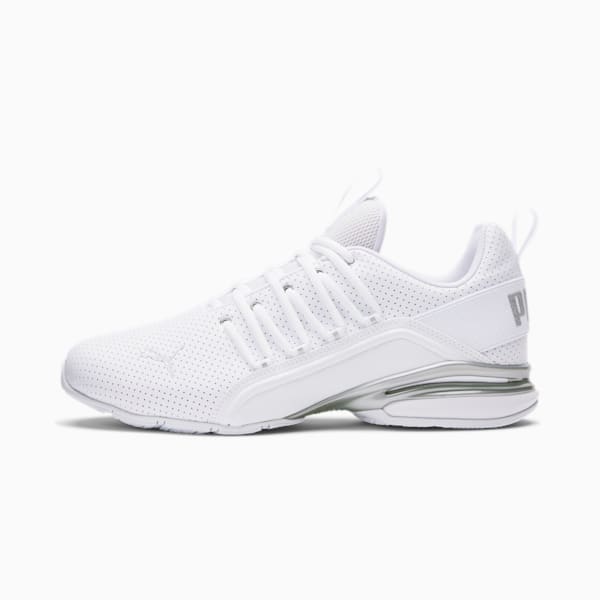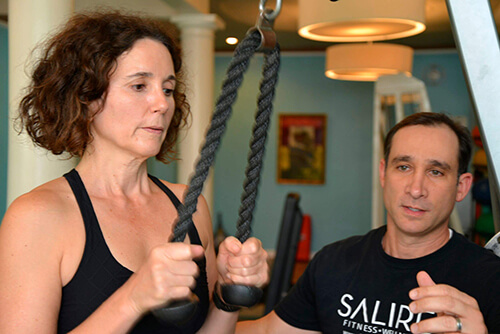
Research is key before you look for certified personal-trainer jobs. To be a successful personal trainer, you must first understand the industry and its salary ranges. Also, learn about how to market yourself. You will also need to know how to market your services. After you have done your research, you can start looking for jobs. Here are some tips that will help you get started. Learn more about this field by reading on!
Personal trainers need to be certified
Personal trainers sometimes pursue bachelor's in exercise science or kinesiology. Many of these programs require internships to gain practical experience under the direction of instructors. Although no certification is required, many candidates would benefit from a diploma or certificate that is professional and recognized by local employers. Here are some tips for pursuing personal trainer certifications.
A high school diploma, or GED, is enough to start a career in personal training. However, certifications in cardiopulmonary rescue and automatic external defibrillator usage can increase your earnings. Many of these certifications require a variety of topics, which are discussed in a detailed course. A certification may also include CPR and AED certifications. There are also certifications in specializations such sports-specific and personal training.

Salary ranges
The salaries of certified personal trainers has increased substantially in the last few years. However, salaries can vary widely. The average annual salary for certified personal-trainers is between $28k - $81k. The hourly rate for certified personal trainers can range from $10 to $50. Salary ranges can be affected by education and experience. However, the average salary of certified personal training professionals is around $30k annually.
There is a wide range of salaries for certified personal training jobs. The most common type is a full-time position with an hourly rate. According to the location and size of the club, the hourly rates will vary. Personal trainers who train a small number of clients can make less than those who work with only one client. But a full-time trainer is likely to make a better salary than someone who only works with one person.
Working in a gym is a great way to get a job.
Most of the "celebrity" trainers were actually former employees of a gym. Their clientele included movie stars and athletes. It offers many benefits to its employees. Being a member of a health club puts you in touch with many people that can benefit your career. For example, Kira Stokes, a personal trainer in New York City, works with A-listers and has been featured in many national magazines and TV talk shows.
A fitness club may offer many opportunities for career growth. Working in a fitness center can lead to promotions or even managerial positions. Jason Stella is a former personal training instructor for Lifetime Fitness. He rose up the ranks to become an Area Director of Fitness and supports the operation of many clubs. Working for a fitness center will give you access to plenty of exercise equipment.

Personal trainers are compensated
If you're looking to make a difference in the lives of others, a career as certified personal trainer might be for you. As a certified personal trainer, you can earn anywhere from $30K to $200K a year. There are several career paths available for those with this certification, so you'll want to make sure to figure out what your career goals are. Once you know your goals, it's easy to pick the right option.
While most personal trainers are independent contractors, there are some types of compensation. You'll be paid a commission if you sell exercise equipment. You'll also make a training rate per session, which can range from $30 to $50. Your income will increase the more sessions you offer. Many fitness clubs offer sales incentives which can boost your earnings. Working for large clubs will result in you being paid a bonus for reaching certain goals.
FAQ
Is it safe to exercise when the temperature is below freezing?
Exercise outside whenever possible. You can exercise outside regardless of the weather. Wind speed, humidity, precipitation, and visibility also play a role. Layers of clothing should be worn if you are exercising outside in inclement temperatures.
What does exercise do for your body?
Exercise can help you lose weight. Build muscle mass, increase energy, reduce stress, and improve quality of your sleep. You will experience improved moods and self-esteem as well as increased productivity and a lower risk of developing heart disease.
What does Nutrition do for Your Body?
Your body can function properly if you get the proper nutrition. It is important to eat a balanced diet, rich in fruits and veggies, lean proteins, whole grain, and healthy fats.
Exercise can I help me lose weight
Yes. Regular exercise is a great way to lose weight. Your metabolism will remain high, so you can continue to burn calories even though you're not exercising.
What happens if I don't get enough sleep?
Lack of sleep means that your brain does not receive enough signals to regulate hormones. This can lead to weight gain and excess eating. Sleep deprivation can also lead to excessive weight gain.
What Are Resistance Training Exercises?
Resistance training uses weights or other objects to perform certain movements. Lifting weights can strengthen your arms, shoulders and chest as well as your back, legs and core. Resistance training increases muscle mass, bone density, and overall strength.
Why is it so important to get enough sleep?
Sleep is essential for maintaining a healthy lifestyle. Sleep allows your body to repair itself and recover from daily stresses. Get enough sleep every night to be able to function well throughout the day.
Statistics
- Globally, 28% of adults aged 18 and over were not active enough in 2016 (men 23% and women 32%). (who.int)
- Adolescent girls were less active than adolescent boys, with 85% vs. 78% not meeting WHO recommendations of at least 60 minutes of moderate to vigorous intensity physical activity per day. (who.int)
- Physical activity confers the following maternal and fetal health benefits: a decreased risk of pre-eclampsia, gestational hypertension, gestational diabetes (for example, 30% reduction in risk) (who.int)
- One study showed that adults who watch more than 4 hours of television daily had an 80% higher risk of death from cardiovascular disease. (heart.org)
External Links
How To
How To Burn Belly Fats Faster
Belly Fat is usually seen as a problem when we want to lose weight. When you stop and think about it, Belly Fat can actually be a blessing. It's the amount of fat stored around your stomach that protects your organs from getting damaged. Let's find out how to lose belly fat quickly.
Stress and inactivity are two of the major factors that cause us to store body fat. Stress makes us feel hungry constantly because it stimulates the production of the cortisol hormone. Cortisol can increase insulin levels in the blood. The insulin stores the excess calories as fat. Lack of sleep causes the release of adrenaline into our system, leading to increased appetite. These extra calories can be broken down by exercising.
There are many ways you can reduce belly fat. You can try any one of them depending upon your budget. These are some ways to quickly lose belly fat.
-
You can eat less. Don't eat three large meals at once. This way, you'll consume fewer calories overall.
-
Get plenty of water. Water flushes out toxins, and keeps your body hydrated. Drinking water before meals will help you feel fuller for longer, so you don't overeat.
-
Avoid snack foods that are unhealthy. If you're looking for quick fixes, snack foods like chips, cookies, candies, etc. These tempting snacks might look appealing. These fattening treats are best avoided as they have too many empty calories and sugar. Choose healthier alternatives such as whole grains, vegetables, fruits, seeds, nuts and seeds.
-
At least three times per semaine, do strength training. Strength training helps build muscle mass, which means that you can burn more calories even when you are resting. Strengthening your bones, muscles as well ligaments, joints, tendons, heart and lungs.
-
Stretching and walking are good habits. Stretching helps to improve flexibility and mobility, which reduces back pain. Walking is a great way of burning calories, especially when you do it for just 30 minutes.
-
Reduce alcohol intake. Your diet is empty of calories, and alcohol has no nutritional content.
-
Slowly lose weight. To lose weight, the first step is to determine what your current weight. Add 5%-10% of your total bodyweight to calculate your ideal size. Once you have reached your target weight, begin decreasing your daily calories intake by 500-1 000 calories until you reach your goal.
-
Avoid processed foods. These foods are high-in salt, sugar, as well as preservatives. Even though they can be very convenient, these foods lack sufficient nutrients to support your health.
-
Don't skip breakfast! Eating breakfast improves concentration, memory, and energy level. Breakfast should include protein (like eggs), fiber (like oats), and complex carbohydrates (like oatmeal).
-
Have regular bowel movements. Constipation or irregularity can lead to gas and bloating. To prevent this, drink plenty of water and increase fiber intake.